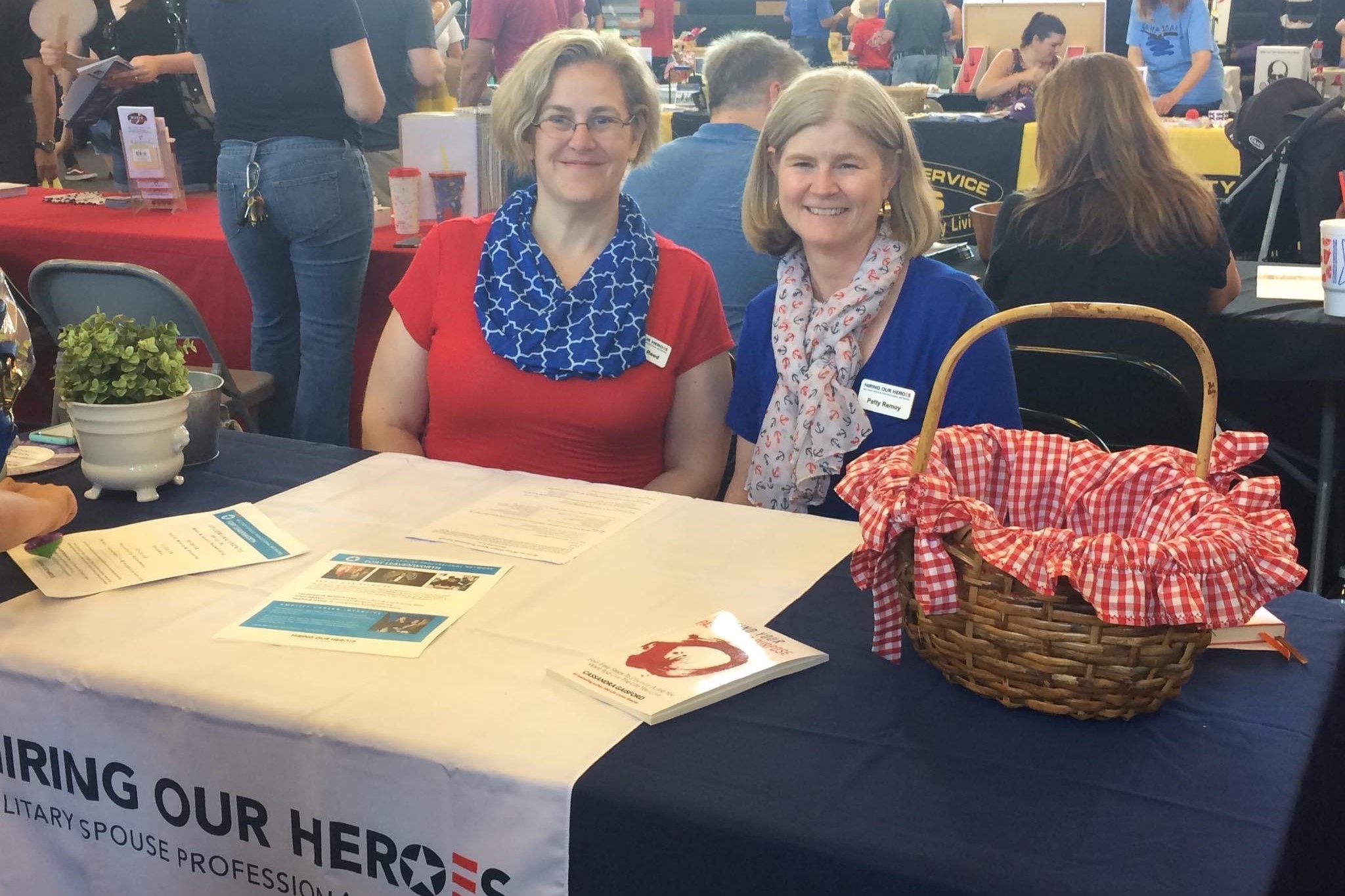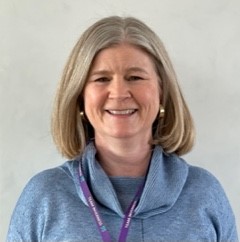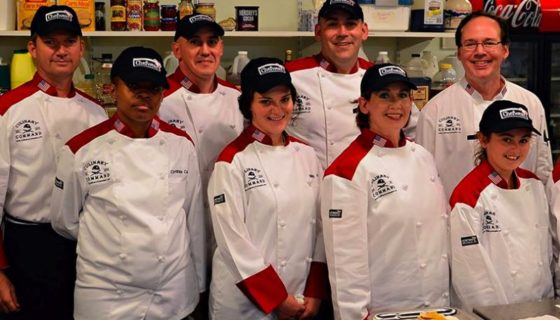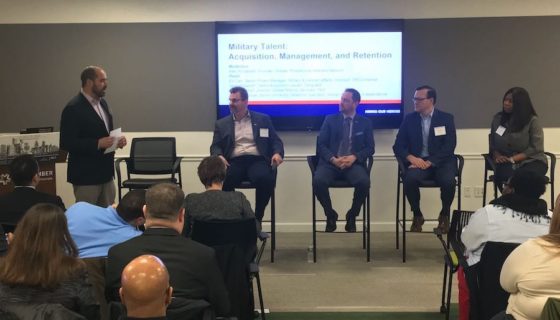‘Thanks to the Network, I Have Financial Stability and a Career I Enjoy:’ Meet Patty Mulkeen Remoy

Military spouses face a higher rate of unemployment and underemployment than their civilian peers due to frequent relocations.
Hiring Our Heroes established the Military Spouse Professional Network to address this challenge. With more than 70 networks across 27 states, Washington, D.C., and 11 countries, MSPN connects thousands of military spouses with career development and networking opportunities in their local communities. In 2022, more than 65,000 military spouses were members of MSPN.
This month, Hiring Our Heroes is sharing how the MSPN helped military spouse Patty Mulkeen Remoy achieve financial stability doing work she enjoys. Remoy explains how MSPN taught her to tailor her resume and network her way to professional success.
Name: Patty Mulkeen Remoy
Status: Recently divorced U.S. Army military spouse
Location: Stuttgart, Germany
Job Title: Contractor Installation Manager for Transition Assistance Program (TAP)
Employer: Inverness Technologies

Tell us about yourself. I have a B.A. in Psychology from Clemson University and a Ph.D. in Human Development and Family Studies from The Pennsylvania State University.
In my academic career, I supported 4-H youth development programs throughout West Virginia with curriculum, program evaluation and staff training. I moved into a more administrative role in institutional research and used my problem-solving skills to answer questions about student enrollment and success.
In my current role, I help transitioning service members figure out their next career or educational steps.
What do you enjoy about your job? When I find a resource that meets someone’s needs. I see their eyes light up as they think, “I could use that.” That’s the best part of my job.
Related: 3 Ways the MSPN Connects Military Spouses with Career Opportunities
What has been your biggest challenge as a military spouse in the workforce? Figuring out alternate career paths when my original path wasn’t available to me.
How did MSPN help you land your current role? In 2016, my now ex-husband and I moved to Kansas for his next assignment. I had not worked for two years, but I assumed with 18 years of higher education experience, I wouldn’t have too much trouble finding a job.
I applied to jobs at local universities and on post, including a TAP counselor position, but did not get a single email or call for an interview. It was a bit demoralizing.
I spotted information about an HOH MSPN meeting and shored up my courage to meet new people and network. I thought maybe if I talk to some folks, I can find some job leads or figure out what I’m doing wrong.
At that meeting, I mentioned my interest in a TAP counselor job on post, and two volunteers for MSPN worked with TAP. They encouraged me to apply as the position had recently re-opened. They shared my resume with the manager. Within a month, I started working.
“I assumed with 18 years of higher education experience, I wouldn’t have too much trouble finding a job.”
Patty Mulkeen Remoy, Contractor Installation Manager for Transition Assistance Program (TAP)
After a year, I was selected as the manager. After another year, I was offered a transfer to Stuttgart since my spouse was PCSing there.
After starting work in Stuttgart, a former colleague and MSPN volunteer Cheryl Edenfield was moving to Hawaii. I talked with her and suggested her for the Department of Labor TAP facilitator role there. They loved her, and she loved the job. She moved to Georgia and still does that job and is now moving to Stuttgart.
Networking and professional relationships have really enriched my career! The value of networking has really been proven to me, and I’ve realized that most professionals I’ve reached out to are willing to help once I get over the fear of asking.
Why do you volunteer with the Military Spouse Professional Network? I struggled with finding meaningful work after several moves, so I want to help others figure out their direction and go after their goals.
What has been your favorite MSPN event? I really enjoyed doing a resume roundtable with other members. It opened my eyes to formats and how to present information.
Working with the military spouse network and doing the job I do now, I have a much better resume. I laugh at the resume I first submitted for the TAP job. It was not tailored to the position at all.
I also enjoyed teaching resume development to the Fort Leavenworth Amplify in spring 2019.
How has the MSPN and Hiring Our Heroes impacted your financial well-being?
Shortly before I started with the TAP program, my mother-in-law decided to move into a much-needed assisted living facility. We absolutely needed to help her financially to afford a comfortable place, and that was going to crunch our budget a bit.
The timing for going back to work was perfect. With my divorce last year, having my own SOFA (status of forces agreement between a host country and a foreign nation stationing military forces in that country) status and keeping my job (with substantial pay increases over the last five years) has been key to my financial well-being.
What one piece of advice would you give to a military spouse who isn’t familiar with the MSPN?
Be brave and check out a meeting, regardless of whether you are rocking your current career or figuring out your next steps.
“Be brave and check out a meeting, regardless of whether you are rocking your current career or figuring out your next steps.”
Patty Mulkeen Remoy, Contractor Installation Manager for Transition Assistance Program (TAP)
Where do you think you would be right now without the Military Spouse Professional Network?
Honestly, I felt a bit depressed and isolated when I wasn’t working, so getting the job at Fort Leavenworth was beneficial for my mental health.
Without that position, our savings would have been burned up with helping my husband’s mother. If everything had played out the same way with my divorce, being unemployed would have been much scarier.
Thanks to the network, I have financial stability and a career I enjoy.



